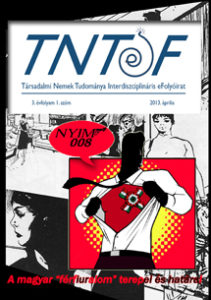University Genre-paintings (Életképek) - Petty Hungarian Patriarchy
Main Article Content
Abstract
This time I do not wish to ascend to the theoretical heights of phallogocentrism but descend to the actual university campus. I would like to discuss the institutional practices of the Hungarian Academe from the perspective of the female professor. Writing in the guise of a quasi anthropologist I aim to identify the more or less automatic and unintended reproduction of technologies of masculine power in the everyday practices of university life. While I am going to draw on decades of my own lived experience as a philosopher, I will support my personal observations d by statistics, and I trust that many readers will recognize their own experiences, as well. , Although today in Hungary the majority of graduates from universities and colleges are women (53%), the academic hierarchical distinctions between men and women are still maintained. I will look at my own experiences as illustrations of typical acts of cross-sex communication and the corresponding character types as enactments of Bourdieau’s habitus (Bourdieu 2000, 46-47). Ultimately I want to underscore the few existing positive practices, challenging the dominant masculine practice relative to the existing theories that are already translated to Hungarian.

